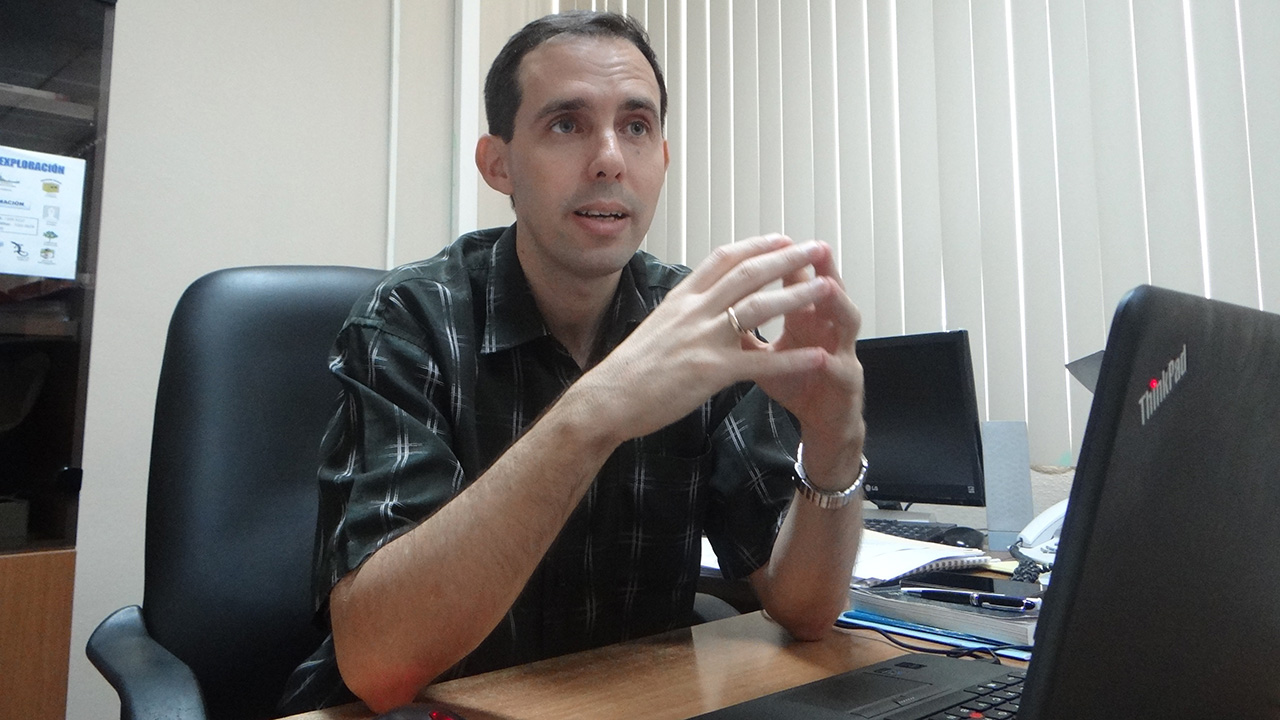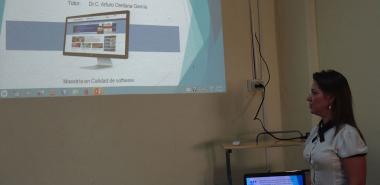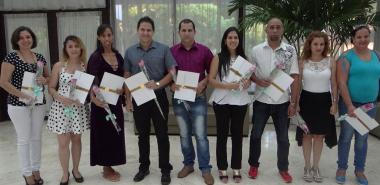Ph.D. Raydel Montesino Perurena. Photo: Zenia Camps Vidal.
I have a lot to be grateful of Petci
As part of a quality strategy, backed by policies of the Ministry of Higher Education, the University of Informatics Sciences (known as UCI) will receive the National Accreditation Board (JAN) at the end of this month to evaluate the master's degree in Software Quality And the doctorate in Computer science.
Several actions over the years have made the UCI obtain an external evaluation that accredits the complete university, among them is the defense and later accreditation of the degree in Computer Science Engineering, the accreditation of the master's degree in Project Management Informatics, as well as obtaining the certification of CMMI level 2 of the productive processes.
Regarding the readiness of the JAN visit to the UCI, a reporter from Mella newspaper spoke to the Deputy Rector of the institution, Ph.D. Raydel Montesino Perurena.
The manager in a friendly dialogue addressed the issue of accreditation from his perspective as a person with responsibilities that represents postgraduate activity in the UCI and as a graduate in Technical Sciences through the doctoral program of our University.
"We are going to present the results that we have. The MSc in Software Quality and the Ph.D. in Computer Science, have ample results to show to the evaluators. The accreditation process requires the preparation of a file that has already been submitted, which contains a self-assessment of both programs (...). The mastery is evaluated with the two editions that are already closed and the one that is open, and the doctorate as it does not release editions, is evaluated through the scientific results, the staff, the enrolled, aspirants and graduates (...). The JAN, collects all evidence of the strengths that we present in the file, and verifies the veracity of the information, through interviews, validation of documents, among others.
On the strategy of scientific formation that owns the UCI the Vicerrector also commented to Mella newspaper.
"The scientific training in the UCI, starting with the doctorate, has gone through several stages. The most important year was in 2011 when the Special Scientific Training Program (Pefci) was created, before the doctoral program we have today. The strategy in its beginnings was more directed at guiding young scientists to carry out their research. As a result of this program is that the doctoral program, supported by the Pefci, is perfected and approved, which identifies the quarry of those who are enrolling in the doctorate.
"There is a total link between the doctoral program and the work of the scientific groups, and the different seminars and master's programs. They can not be seen in isolation, the doctorate is at the tip of the pyramid and must be supported by master's research, which must have associated students in their graduate work, supporting scientific research, that is, that the pyramid work ".
As another young man of the University, besides being a leader with high responsibilities, Ph.D. Montesino told us about the meaning he had for him to enter the Pefci and to graduate as Doctor in Technical Sciences with the doctoral program of the UCI.
"I was one of the initiators as Doctor in training of the Pefci, at that moment had some results of the investigation, and needed a lot of orientation, and there I obtained it. Pefci made it clear to me at the time what the roadmap was to carry out the research, and in the case of the cadres, as we had to assume, one of the strategies of our University is that young cadres achieve a scientific education .
"You can not be fond of the doctorate, you have to be efficient and that program helped me, planning the times when you should be doing everything, and organized me until the time I could need a release, because at that time I was the Director of Networks and Computer Security.
"The doctoral training also needs to put a lot of part of those that we are forming, and the Pefci in its beginnings also helped in that, through the checkings, the seminaries, that puts goals to the students. Scientific discussions were very helpful, not just one, but the rest. I have much to thank the program and the guides and initiators of this, Vivian Estrada and Juan Pedro Febles, and of course my tutors.
At the end of the conversation, the Deputy Rector , who currently collaborates with the doctorate as a tutor, emphasized the importance of not only training as scientists but also the need to support all graduates as doctors and masters in the process of training other professionals.






